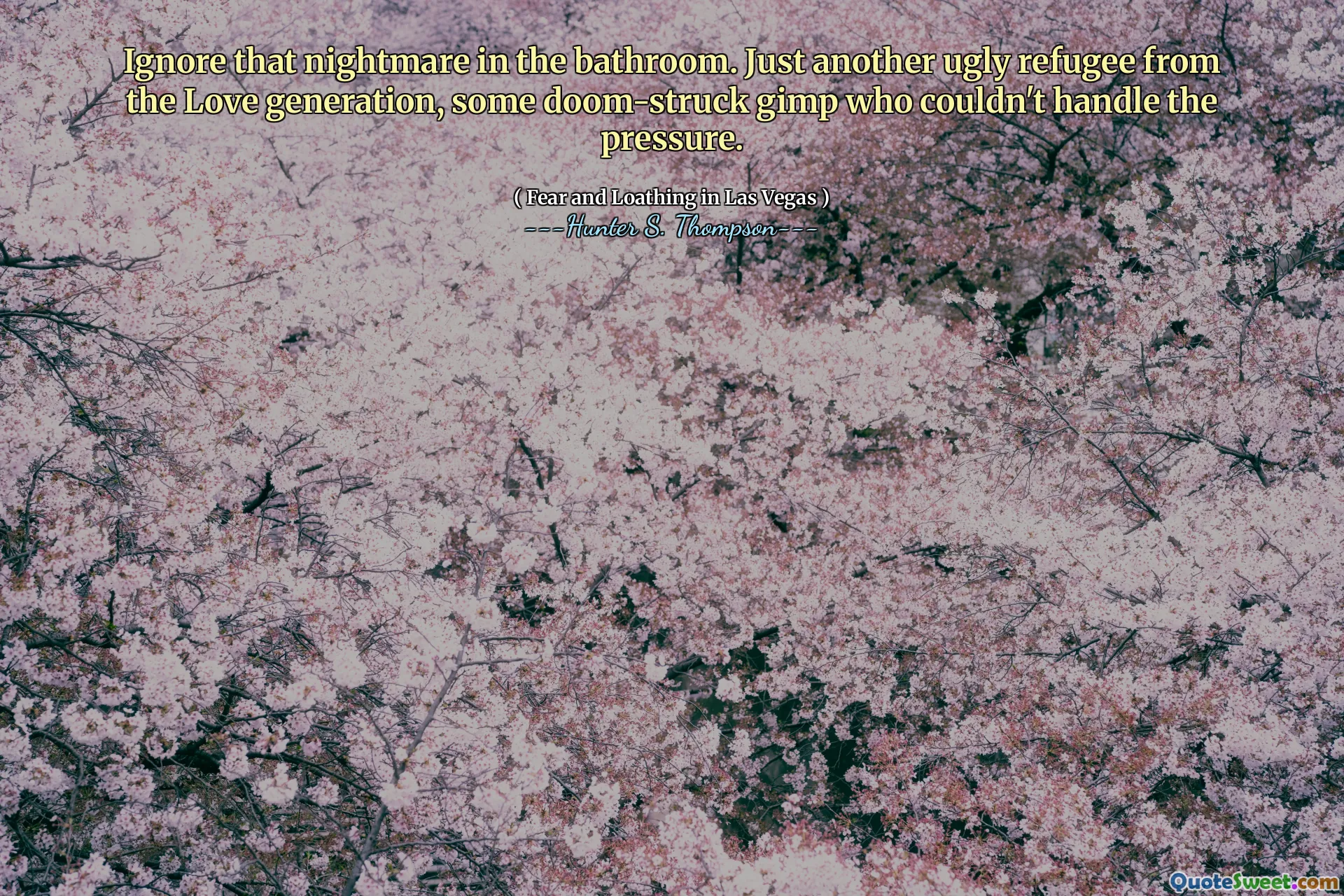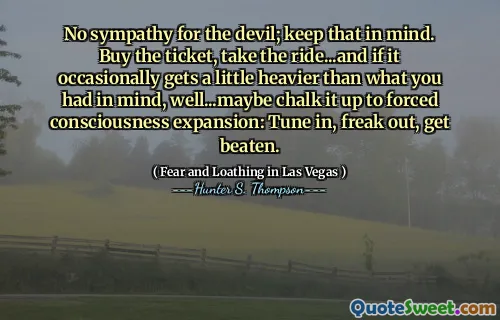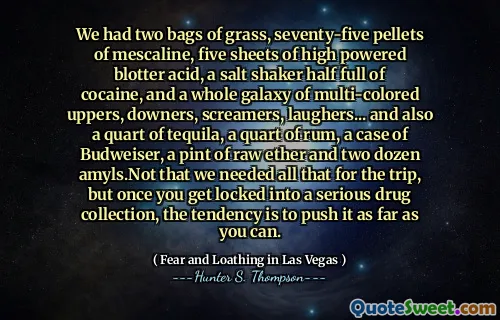
Ignore that nightmare in the bathroom. Just another ugly refugee from the Love generation, some doom-struck gimp who couldn't handle the pressure.
The quote from Hunter S. Thompson's "Fear and Loathing in Las Vegas" reflects a cynical view of a person struggling with the consequences of the 1960s counterculture. It suggests that the individual is a byproduct of a challenging era, overwhelmed by societal pressures and unable to cope with the harsh realities of life. This imagery emphasizes the despair and disillusionment felt by some who sought freedom and meaning during the Love generation, only to face a grim aftermath.
Thompson's language portrays the subject as a "gimp," indicating a sense of helplessness and defeat. This portrayal serves to critique not just the individual, but also the broader societal expectations that came with the ideals of the time. It brings to light the darker side of the pursuit of happiness and freedom, revealing the emotional turmoil hidden beneath the surface of the seemingly carefree attitudes of the 1960s. Through this lens, Thompson captures the essence of a lost generation grappling with the fallout of their choices.











